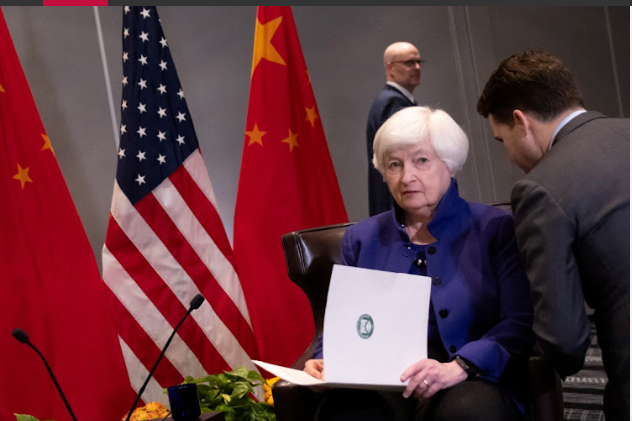
The United States Congress is set to vote on a new set of restrictions that would limit American investments in Chinese companies, marking a significant shift in U.S. policy towards China. The proposed restrictions come amid escalating tensions between the two countries, particularly in areas of trade, technology, and national security.
The legislation aims to curb U.S. financial support for Chinese firms involved in sectors deemed sensitive, such as artificial intelligence, telecommunications, and defense. Proponents of the bill argue that it is necessary to safeguard U.S. interests, particularly as China has been ramping up its technological capabilities and military expansion. By restricting investments, the U.S. government hopes to slow China’s progress in key technologies that could potentially be used against American national security.
The restrictions are being framed as a response to concerns that China has been exploiting foreign investments to advance its technological prowess and strengthen its military. Critics of China’s practices, including intellectual property theft and forced technology transfers, have pushed for stricter measures to protect U.S. firms and reduce the flow of capital to Chinese companies that might contribute to these activities. The proposal is seen as an extension of the Trump administration’s China hawk stance, which aimed to decouple the U.S. and Chinese economies in critical sectors.
However, the move has sparked heated debate in Congress. While many lawmakers argue that the restrictions are necessary to protect U.S. innovation and national security, others express concern about the potential economic consequences. China is a major trading partner and a crucial player in global supply chains, particularly in industries like electronics and rare earth materials. Restricting investments could lead to retaliatory measures from Beijing and disrupt American businesses that rely on Chinese manufacturing and access to the market.
Opponents of the bill also warn that the move could further exacerbate tensions between the two countries, potentially leading to a broader economic and diplomatic conflict. They argue that the U.S. should focus on strengthening its own technological and economic capabilities rather than isolating China, which would only hurt American companies in the long run.
Beyond economic considerations, the proposed restrictions are part of a broader geopolitical strategy by the U.S. to counter China’s growing influence on the global stage. By limiting investment in Chinese companies, the U.S. aims to prevent China from gaining access to critical technologies and resources that could give it a strategic advantage in the future.
The outcome of the vote will have far-reaching implications for U.S.-China relations and the global economy. If the bill passes, it could set a precedent for other countries to implement similar measures, potentially leading to a fragmented global investment landscape. On the other hand, if the bill is rejected, it could signal a shift toward more cooperative engagement between the U.S. and China, despite their ongoing tensions.
As the vote approaches, both Washington and Beijing are closely monitoring the situation, with analysts predicting that the decision could influence future trade talks and diplomatic efforts. The outcome may also impact the broader investment climate, as U.S. firms will need to navigate an increasingly complex regulatory environment if they wish to maintain ties with China.

